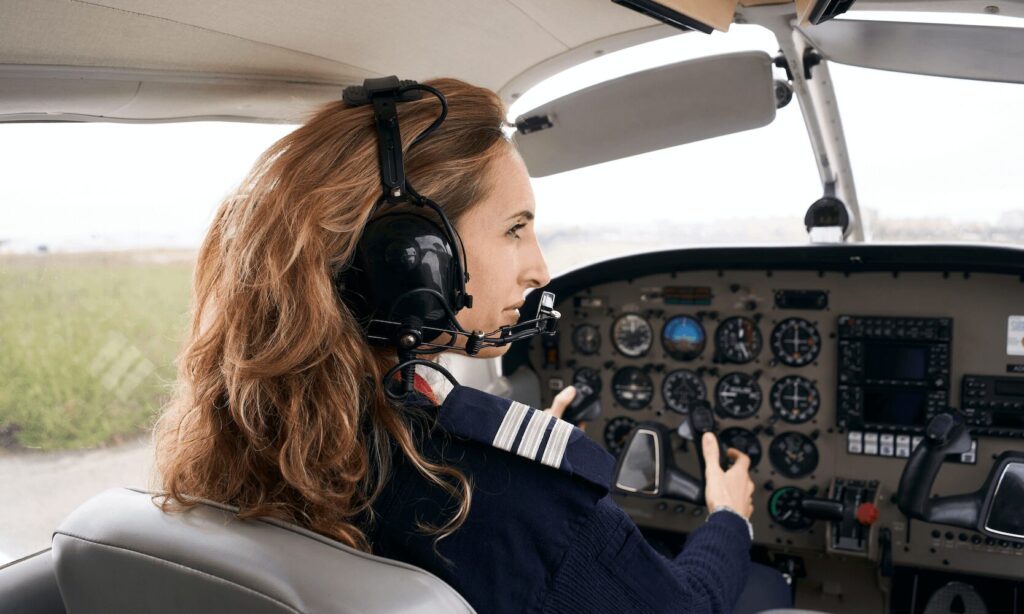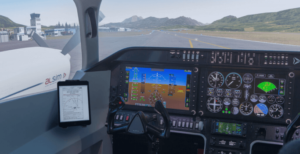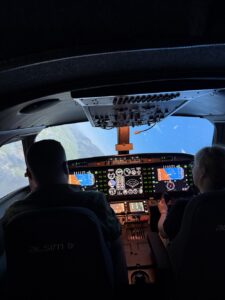Passenger aviation has historically been a male-dominated industry since its inception. However, over the years, women have increasingly entered this previously male-reserved field, bringing their skills, passion, and determination. In this article, we will explore the history and current role of women in passenger aviation, highlighting their contributions and the challenges they face.

Aviation pioneers and women in commercial aviation
The first women who dared to take the controls of aircraft were true pioneers. Amelia Earhart is one of the most famous figures in aviation history. In 1932, she became the first woman to fly solo across the Atlantic, inspiring future generations of female pilots. Another significant figure was Jacqueline Cochran, who established the first women’s air unit during World War II.
Although women were rare in the cockpits of commercial aircraft in the early decades, they gradually started to earn their place. In the 1970s, Yvonne Pope Sintes became the first airline captain in the United Kingdom, and Bonnie Tiburzi became the first female pilot to join American Airlines.
Current role of women in passenger aviation
Today, women occupy various roles in passenger aviation, from pilots to cabin crews and ground staff. Although the number of female pilots is still relatively low compared to men, it is increasing year by year. According to the International Civil Aviation Organization (ICAO), women make up about 5% of all pilots worldwide.
Women are also increasingly taking on managerial and technical positions in the aviation industry. Many hold leadership roles in airlines, manufacturing companies, and regulatory agencies. For example, Christine Ourmières-Widener served as the CEO and General Manager of the French airline Flybe.
Supporting women in aviation
Enhancing women’s participation in aviation is not only a matter of social justice but also a way to tap into the full potential of available talent in the labor market. Additionally, increased diversity in teams leads to innovative solutions and improved financial performance for companies.
Mentoring and educational programs
To support women in aviation, more mentoring programs and educational initiatives are emerging. Organizations such as Women in Aviation International (WAI) offer training, scholarships, and networking opportunities for women in the industry. WAI runs several initiatives, including an annual conference that brings together professionals from around the world, facilitating the exchange of experiences and the acquisition of valuable skills.
Other organizations, like the Association for Women in Aviation Maintenance (AWAM), focus on supporting female technicians and engineers, offering training programs and scholarships. AWAM also organizes workshops and meetings that help women advance their careers in aircraft maintenance.
Equality Policies
Many airlines and aviation organizations are implementing policies to promote gender equality and create a more inclusive work environment. An example is the She Can Fly program at Wizz Air, which aims to increase the number of female pilots. This program includes recruitment initiatives, training, and mentoring to support women at every stage of their careers.
Conclusion
Women are playing an increasingly important role in passenger aviation, making invaluable contributions to the development of the industry. Despite numerous challenges, their presence is becoming more visible and significant. With the support of educational programs, mentoring initiatives, and equality policies, the future of women in passenger aviation looks promising





